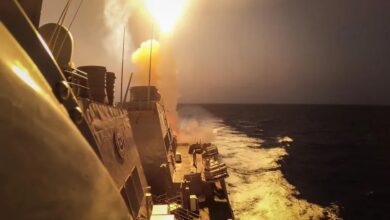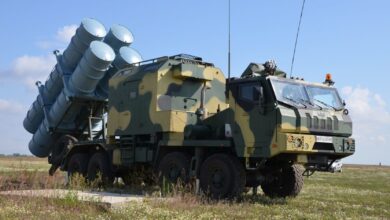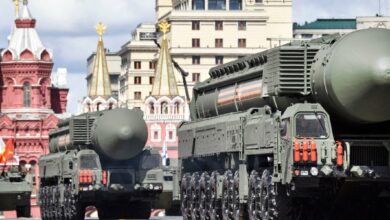Iran Deploys Submarine, Cruise Missile in Exercises Near Sensitive Strait of Hormuz
Dubbed "Zolfaghar 99," the three-day exercises are being held over waters stretching from the northern Indian Ocean to the eastern end of the Strait of Hormuz.
The Iranian navy on Friday deployed homegrown military equipment including a submarine and a cruise missile on the second day of exercises near the strategic Strait of Hormuz.
The submarine dubbed the Fateh — Persian for “Conquerer” — was seen in action for the first time and sailed up the Indian Ocean, the military said on its website.
The near 600-tonne sub is equipped with torpedoes, mines, and cruise missiles, and can stay underwater at a depth of more than 200 meters (650 feet) for up to 35 days, according to Iranian media.
Unveiled last year, it is Iran’s first submarine in the semi-heavy category, filling a gap between its light Ghadir class and heavy Kilo class submarines.
Dubbed “Zolfaghar 99,” the three-day exercises are being held over waters stretching from the northern Indian Ocean to the eastern end of the Strait of Hormuz, through which a fifth of world oil output passes.
The Iranian navy also test-fired a “Ghader” land-to-sea cruise missile first unveiled in 2014, saying it successfully hit its target at a distance of over 200 kilometers (124 miles).
#Iran has successfully conducted live-fire missile tests in an ongoing three-day military exercise in the #PersianGulf. The country has displayed a variety of advanced #military equipment during the drills.#Defense pic.twitter.com/pGkNNw3GSe
— Press TV
(@PressTV) September 11, 2020
The installation of missile systems “all across the country’s southern coast has enabled us to target any threat at sea from any point,” navy commander Rear Admiral Hossein Khanzadi said.
“This is not about deterrence; it’s about attacking any target that could pose a threat for Iran,” he said on state television.
Videos aired on state television showed the missile being fired from a mobile system installed on a truck, with Khanzadi thanking the crew afterward.
A locally-made “Simorgh” combat drone also destroyed its targets using “smart, precision bombs” in waters more than a 1,000 kilometers (620 miles) away, the navy said.












